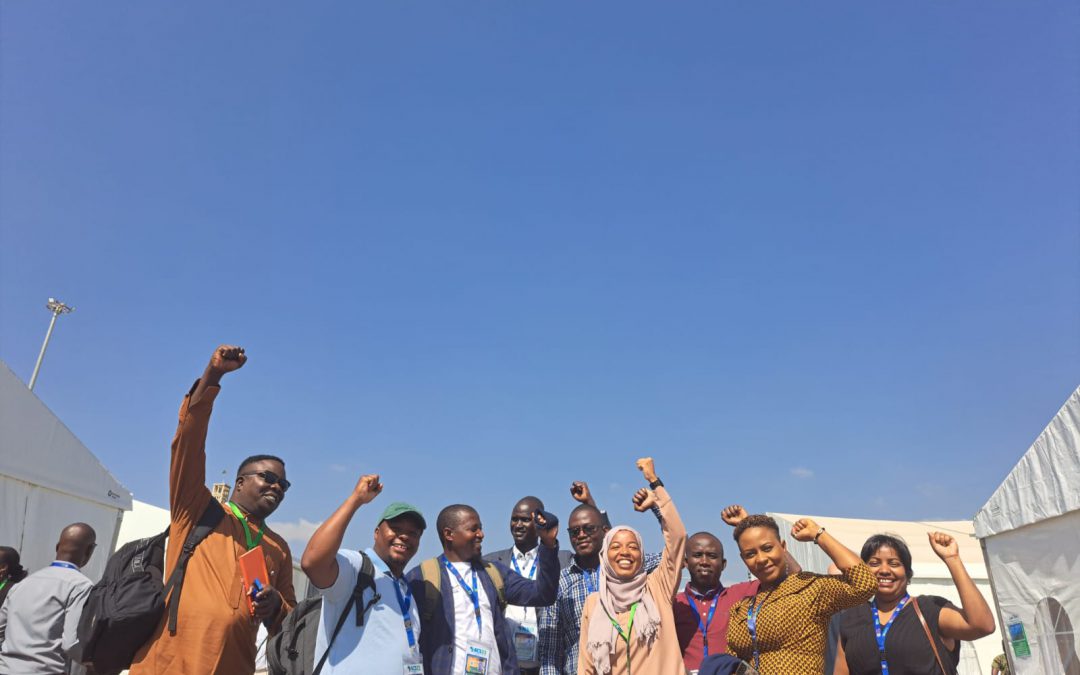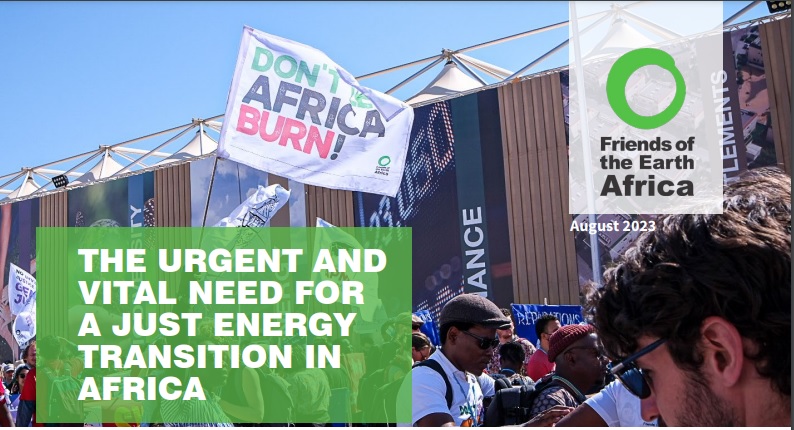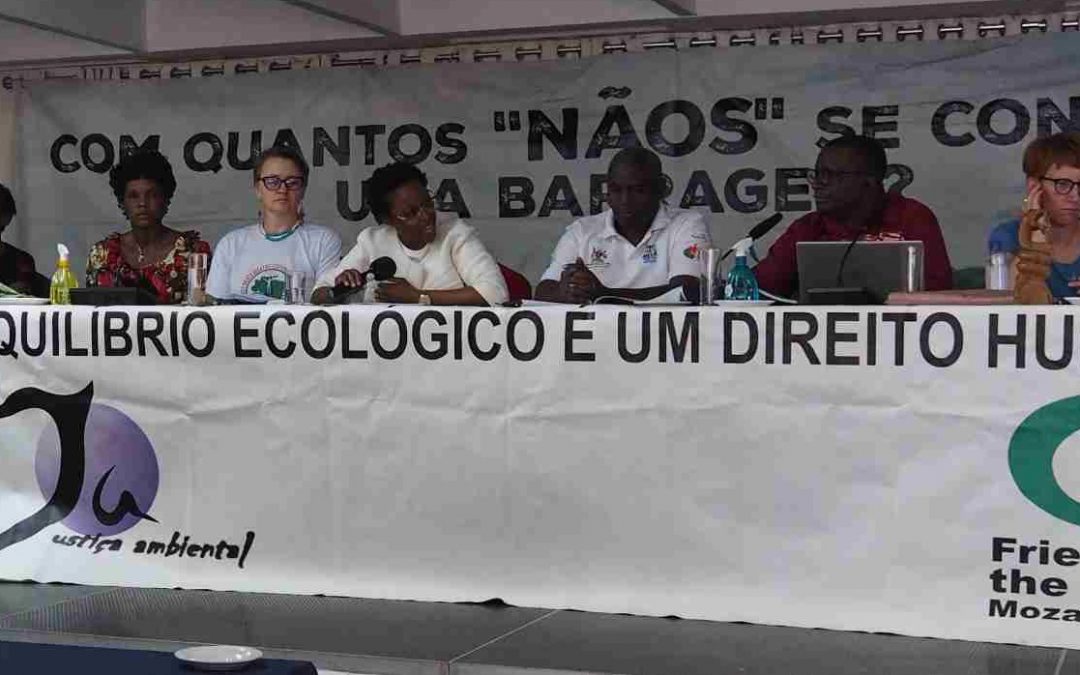
Latest data reveals global increase in fossil fuel dependence
The latest Global Oil and Gas Exit List (GOGEL) just published by Urgewald, tells a damning story of the oil and gas industry, which continues to support new oil and gas projects in the midst of our climate emergency. The updated GOGEL is supported by the Life after Coal Campaign and more than 50 partners from around the world. It is a critically important resource for all those working towards environmental and climate justice around the world.
“With Africa having contributed the least towards global warming yet bearing the most severe impacts of a rapidly changing climate, it is important for civil society here and around the world to have access to updated, well-researched data,” says Bobby Peek, Executive Director of groundWork, part of the Life After Coal Campaign. “This information enables us to challenge companies over the continued irresponsible exploitation of oil and gas reserves and unchecked profiteering at a time when the world is descending into climate chaos,” says Peek.
Findings
The GOGEL is a global audit covering 1,623 companies active in the upstream, midstream or gas-fired power sector which accounts for 95% of global oil and gas production. Key findings include:
- 96% of upstream companies on the GOGEL are still exploring or developing new oil and gas fields;
- Global gas-fired capacity is expected to rise by a staggering 30%; and
- The global oil and gas industry is planning to increase liquified natural gas (LNG) export capacity by 162%.
Nils Bartsch, Head of Oil & Gas Research at Urgewald says, “The magnitude of the industry’s expansion plans is frightening. To keep 1.5 °C alive, a speedy, managed decline in oil and gas production is vital. Instead, oil and gas companies are building a bridge to climate chaos.”
Exploration and Expansion
Starting with exploration, the GOGEL shows that, amid the climate crisis, 96% of the 700 upstream companies listed are still exploring or developing new oil and gas fields. Since 2021, industry’s annual capital expenditure on oil and gas exploration has risen by more than 30%. Over the past 3 years, oil and gas companies in the GOGEL database spent a total of US$ 170.4 billion on exploration for new oil and gas reserves that we cannot afford to burn.
In addition to exploration, the GOGEL reveals extensive and reckless upstream expansion with 539 companies preparing to bring 230 billion barrels of oil equivalent (bboe) of untapped oil and gas resources into production.[1] These short-term expansion plans severely jeopardize efforts to limit the global temperature increase to 1.5 °C.
Oil and gas expansion in ‘frontier’ countries will create new fossil fuel dependencies, severely compromising, if not displacing Just Energy Transitions which could see cheap and rapid builds of renewable energy for countries that are not yet locked into expensive and polluting oil and gas dependencies.
Companies on GOGEL are exploring or developing new oil and gas resources in 129 countries. TotalEnergies tops the list with expansion in 53 countries, including South Africa, Namibia, Mozambique and Papua New Guinea. These countries currently have little or no oil and gas production,[2] which should therefore make transition easier.
“Oil and gas companies like TotalEnergies, Shell, and their local partners are spending billions of dollars to lock African countries into a fossil gas future. Gas is not a viable energy option for Africa. It is dirty, expensive, and most new projects will take 5 – 7 years to build before they can make any contribution to energy security. What we need is a just transition to affordable and renewable energy for all,” says Leanne Govindsamy from the Centre for Environmental Rights.
New Gas Infrastructure and Gas-fired Expansion
In relation to gas infrastructure, the 2023 GOGEL covers all companies that are developing new liquefied natural gas (LNG) terminals, and it provides disaggregated data for the expansion of LNG export and import capacities.[1] According to the database, companies are planning to increase global LNG export capacity by 162%.[1] New LNG export terminals are key drivers of large-scale gas extraction in countries like the US, Qatar, or Mozambique. In the case of South Africa, foreign companies are driving the development of new LNG terminals and infrastructure that capture public funds and yet more debt for large scale extraction, thereby disrupting the country’s efforts to build local industry and renewable energy that will ensure energy security needed for economic recovery.
In terms of gas-fired power, the 2023 GOGEL for the first time provides data on companies’ gas fired power expansion plans. In total, GOGEL identifies 651 companies that are planning to develop an additional 567 gigawatt (GW) of gas fired power capacity in the midst of the escalating climate crisis. If built, these projects would increase the world’s installed gas fired capacity by 30%.[3] A substantial part of the global gas fired power build out would rely on expensive imported LNG.
Nils Bartsch of Urgewald explains that, “The industry likes to frame fossil gas as the cleaner successor to coal and a bridge fuel for the energy transition. This is a flawed fossil fantasy. If life cycle emissions are properly factored in, fossil gas can be just as harmful to the climate as coal.”[4]
Are financial institutions ending or perpetuating oil and gas expansion?
With every decision to drill a new well, companies are locking us into a path towards disaster. Fossil fuel emissions hit a record high last year, yet oil and gas companies like Shell, TotalEnergies and BP quickly rolled back their already weak climate pledges in 2023 showing once again that profit goes before planet.[5] The oil and gas industry’s so called climate action amounts to little more than a competition in dodging accountability, making empty promises and spreading misinformation.
“Financiers and investors need to face the fact that this industry will not transform voluntarily. Private and public financial institutions, insurers, regulators and central banks must adopt policies that end the financing of fossil fuel expansion. GOGEL provides the data needed to develop and implement these policies. Without swift action, the chance for a 1.5 °C world will be irredeemably lost,” says Katrin Ganswindt, Head of Finance Research at Urgewald.
For more details on the investors behind fossil fuel companies, see Urgewald’s database “Investing in Climate Chaos”: https://investinginclimatechaos.org. Read CER’s statement on the Investing in Climate Chaos, here.
For information on the companies and investors covered by the research and details on the methodology deployed, visit: www.gogel.org.
For further information, contact:
Lerato Balendran Life After Coal +27 (0)79 071 7442 lbalendran@cer.org.za
Tsepang Molefe groundWork, SA +27 74 405 1257 media@groundwork.org.za
Nils Bartsch Urgewald +49 30863292274 nils@urgewald.org
Dr Ognyan Seizov Urgewald +49 30863292261 ognyan.seizov@urgewald.org
[1] The GOGEL short-term expansion metric includes resources categorized by Rystad Energy as “in field evaluation” and “under development.” Companies will start producing these resources in the near future (next 1 – 7 years).
2 S&P Global: https://www.spglobal.com/commodityinsights/en/ci/research-analysis/closing-door-or-window-of-opportunity-for-frontiers.html.
3 Data on operating gas-fired power capacity retrieved from Global Energy Monitor (GEM), Global Gas Plant Tracker (February 2023): https://globalenergymonitor.org/projects/global-oil-gas-plant-tracker/.
4 Gordon et al. 2023: Evaluating net life-cycle greenhouse gas emissions intensities from gas and coal at varying methane leakage rates.










